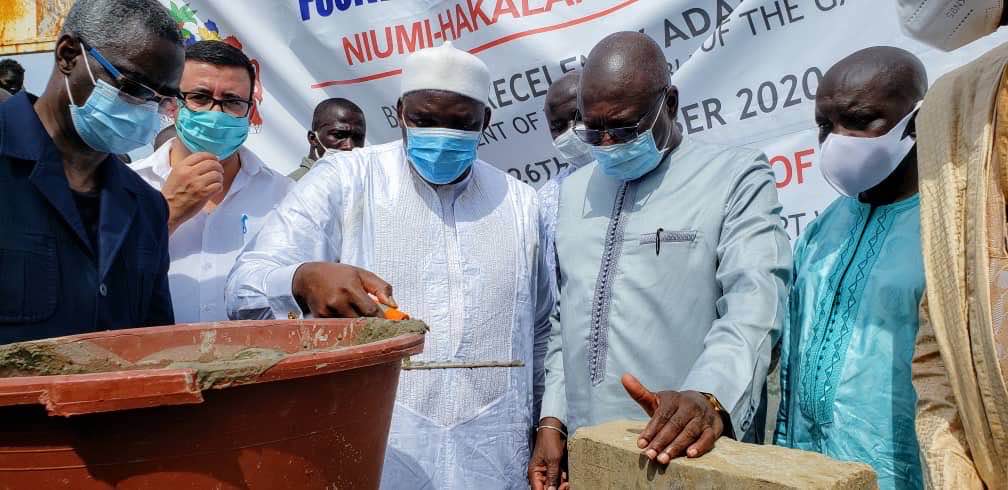President Adama Barrow has expressed hope that the Nuimi Hakalang road network project would yield economic social benefits within the communities of the districts.
Speaking at the laying down of the project foundation, Mr Barrow said: “There is no doubt that the project will yield numerous economic and social benefits within the area, including the development of agriculture, fisheries and tourism, especially for the renowned tourist attraction sites in Jufurreh.”
“We expect, and with much optimism, that the proposed construction works will immediately trigger increased economic activities, such as agricultural production enterprises that include cashew farming and animal husbandry,” he added.
He said his government has taken this stride to ensure that “the people of Hakalang are not, any longer, excluded from the national development process. The development of the roads in the area has been anticipated for more than five decades.”
“Laying the foundation stone for the construction of the Hakalang Road network is evidence of our strong will to ensure that no section of Gambian society is deprived of their rights to live dignified lives and have their equal share of the national cake. The desire of the Government is to minimise rural-urban migration, increase self-reliance and boost entrepreneurship, innovation and productivity, with agro-business production given due attention.
“The residents of Nuimi are popular for their active engagement in gardening and horticulture. Good road networks within the area will ease travel and transportation of farm products to market points, as well as encourage businesses to get closer to the communities,” he said.
He said the project amply demonstrates his government’s commitment to inclusiveness in the country, adding “with improved road networks, the search for better social facilities and employment opportunities in the urban area will be curtailed; thus, the creation of a growing business environment to improve the economic status of rural residents will become far easier to realized.”




